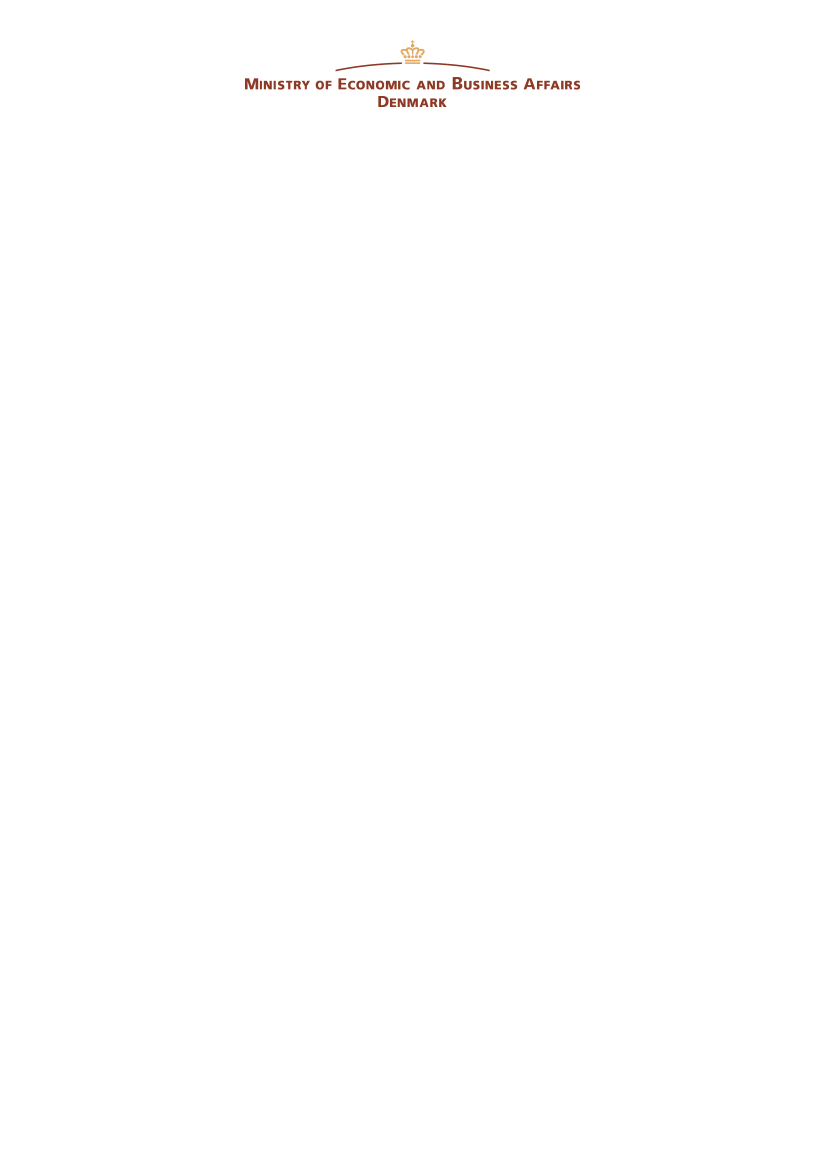
NOTE
Response from the Danish Government to the public consultation on
the review of the European Standardisation System
The Danish Government generally supports a review and evaluation of
the existing European standardisation system since there could be a need
for updating and adapting the legal framework and the standardisation
process in light of new demands and opportunities in a globalised world
with comprehensive technological developments. A service check of the
standardisation system is also in line with the initiatives envisaged by the
Commission in relation to the Commission’s EU2020 Strategy, which
aims at creating framework conditions and provide a basis for future
growth and employment in Europe. In addition, it is the government's
position that standardisation could be an important tool in implementing
public policy and avoiding barriers to trade in a global world. In a possi-
ble revision of the European standardisation system, it is crucial to main-
tain the national delegation principle, improve the efficiency of the Euro-
pean standardisation organisations, and to ensure an open and transparent
standardisation system in which all stakeholders, including consumers,
have the opportunity to participate in the standardisation process.
Standardisation could furthermore be an important tool in cases where
EU-regulations (in shape of e.g. new approach directives) should be filled
out with more detailed specifications. However, in line with decision
2008/768/EC the application of the new approach – and thereby standard-
isation – can be waived in order to ensure adequate consumer protection,
public health and the environment or other aspects of public interests
where it is more appropriate to set out the essential and detailed require-
ments in the Community harmonisation legislation concerned. Due to
earlier experiences with the use of the new approach in the area of envi-
ronment it is important that the environmental objectives and require-
ments are determined in a political process.
Q1: Do you think that service standards (including process standards)
and alternative standardisation documents should be included in the
scope of Directive 98/34/EC or its successor?
In order to ensure the free movement, service standards should be includ-
ed in the scope of Directive 98/34/EC or its successor. Standardisation
could be an important policy instrument to support the development of an
internal market for services. As for alternative standardisation documents,